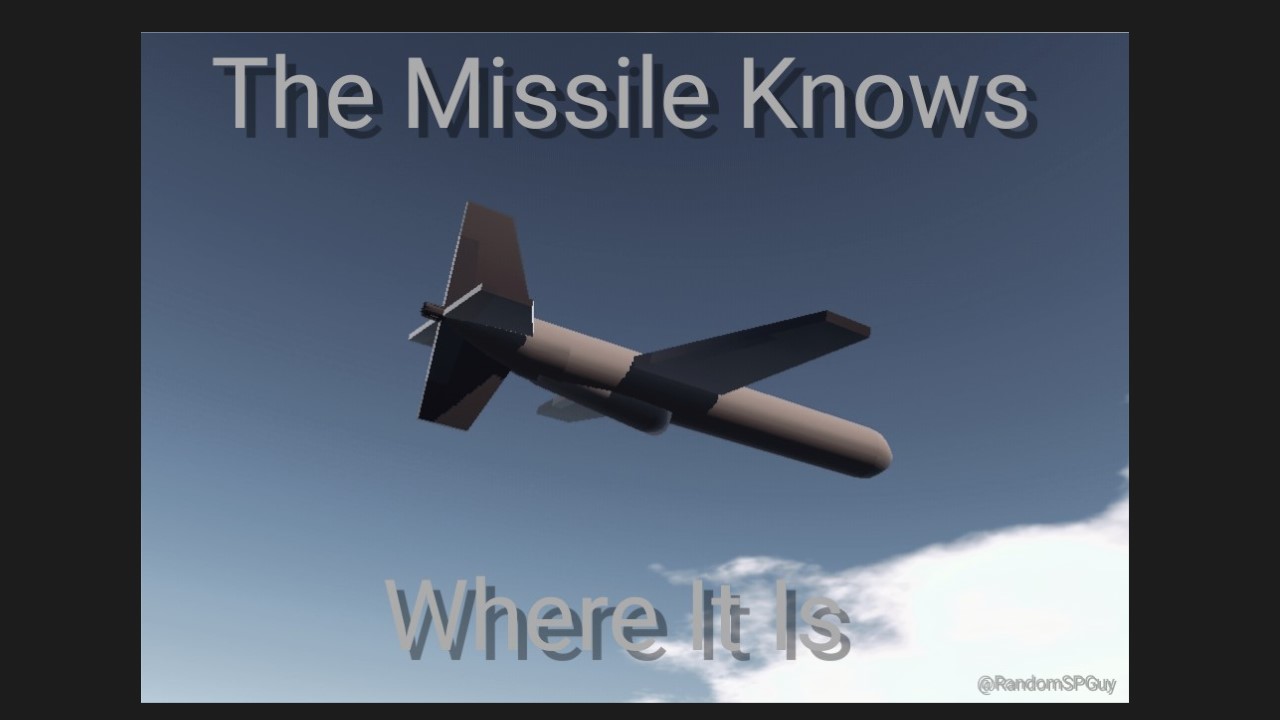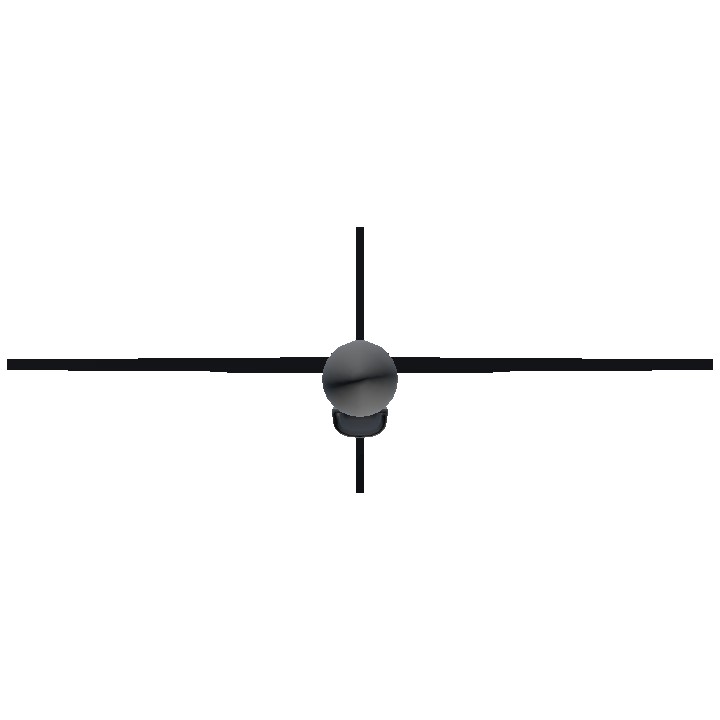The randomness of SimplePlane Website :)
Specifications
Spotlights
- HudDistance one year ago
General Characteristics
- Successors 1 airplane(s) +49 bonus
- Created On Android
- Wingspan 30.2ft (9.2m)
- Length 31.1ft (9.5m)
- Height 11.2ft (3.4m)
- Empty Weight 2,375lbs (1,077kg)
- Loaded Weight 3,372lbs (1,529kg)
Performance
- Power/Weight Ratio 0.999
- Wing Loading 16.9lbs/ft2 (82.7kg/m2)
- Wing Area 199.1ft2 (18.5m2)
- Drag Points 958
Parts
- Number of Parts 13
- Control Surfaces 6
- Performance Cost 77





/Æœůęħj””ľ'¡i
Only one word cans describe this
The missile knows where it is at all times. It knows this because it knows where it isn't, by subtracting where it is, from where it isn't, or where it isn't, from where it is, whichever is greater, it obtains a difference, or deviation. The guidance sub-system uses deviations to generate corrective commands to drive the missile from a position where it is, to a position where it isn't, and arriving at a position where it wasn't, it now is. Consequently, the position where it is, is now the position that it wasn't, and it follows that the position where it was, is now the position that it isn't. In the event of the position that it is in is not the position that it wasn't, the system has required a variation. The variation being the difference between where the missile is, and where it wasn't. If variation is considered to be a significant factor, it too, may be corrected by the GEA. However, the missile must also know where it was. The missile guidance computance scenario works as follows: Because a variation has modified some of the information the missile has obtained, it is not sure just where it is, however it is sure where it isn't, within reason, and it knows where it was. It now subracts where it should be, from where it wasn't, or vice versa. By differentiating this from the algebraic sum of where it shouldn't be, and where it was. It is able to obtain a deviation and a variation, which is called error
Knowledge: 0
Speech: +10000
Missile lore in one post
The missile knows where it is at all times. It knows this because it knows where it isn't. By subtracting where it is from where it isn't, or where it isn't from where it is (whichever is greater), it obtains a difference, or deviation. The guidance subsystem uses deviations to generate corrective commands to drive the missile from a position where it is to a position where it isn't, and arriving at a position where it wasn't, it now is. Consequently, the position where it is, is now the position that it wasn't, and it follows that the position that it was, is now the position that it isn't.
In the event that the position that it is in is not the position that it wasn't, the system has acquired a variation, the variation being the difference between where the missile is, and where it wasn't. If variation is considered to be a significant factor, it too may be corrected by the GEA. However, the missile must also know where it was.
The missile knows where it is at all times. It knows this because it knows where it isn't. By subtracting where it is from where it isn't, or where it isn't from where it is (whichever is greater), it obtains a difference, or deviation. The guidance subsystem uses deviations to generate corrective commands to drive the missile from a position where it is to a position where it isn't, and arriving at a position where it wasn't, it now is. Consequently, the position where it is, is now the position that it wasn't, and it follows that the position that it was, is now the position that it isn't.
In the event that the position that it is in is not the position that it wasn't, the system has acquired a variation, the variation being the difference between where the missile is, and where it wasn't. If variation is considered to be a significant factor, it too may be corrected by the GEA. However, the missile must also know where it was.